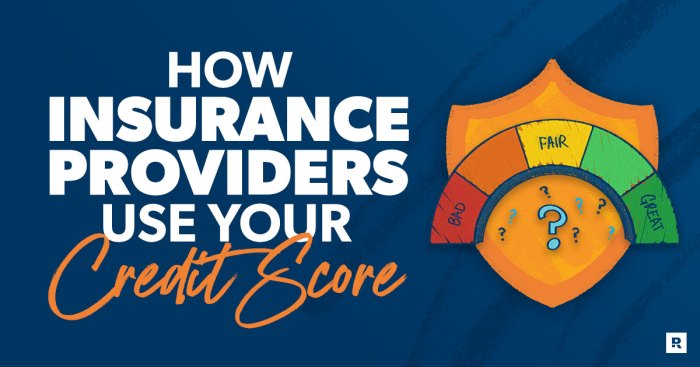
Do insurance companies run your credit? You bet they do! It might seem strange, but your credit score can have a big impact on how much you pay for insurance. Insurance companies see your credit history as a way to predict how likely you are to file a claim, and that can affect your premiums.
Think of it like this: if you’re a responsible person who pays their bills on time, insurance companies might see you as less risky. This could mean lower rates for you! But if you’ve got a history of late payments, you might end up paying more. Let’s dive into the details and see how your credit score impacts your insurance.
How Credit Scores Influence Insurance Rates
You might be wondering, “How does my credit score affect my car insurance?” It’s a common question, and the answer is more complex than you might think. Insurance companies use your credit score as a way to assess your risk, and that risk can directly impact your insurance premiums.
Credit Scoring Systems Used by Insurance Companies
Insurance companies use a credit scoring system to evaluate your creditworthiness, which is essentially a measure of your financial responsibility. These scores are based on a variety of factors, including your payment history, debt levels, and credit utilization. The scoring system used by insurance companies is similar to the FICO score, which is the most widely used credit scoring model in the United States. However, insurance companies may use proprietary scoring models that consider specific factors relevant to insurance risk.
Factors Influencing Credit Score Impact on Insurance Rates
Several factors can affect how your credit score influences your insurance rates. Here are some key points to consider:
- Payment History: Your payment history is a significant factor in your credit score. Consistent on-time payments demonstrate financial responsibility, which can lead to lower insurance rates. Conversely, missed or late payments can negatively impact your credit score and potentially increase your insurance premiums.
- Debt Levels: The amount of debt you carry can also influence your insurance rates. High debt levels can indicate a higher risk of financial instability, which insurance companies may view as a risk factor. Managing your debt effectively and keeping your debt-to-income ratio low can help improve your credit score and potentially reduce your insurance premiums.
- Credit Utilization: Credit utilization refers to the amount of credit you are using compared to your available credit limit. A high credit utilization ratio (e.g., using 80% of your available credit) can negatively impact your credit score and potentially increase your insurance rates. Keeping your credit utilization low (e.g., below 30%) can improve your credit score and potentially lead to lower insurance premiums.
- Credit Inquiries: Each time you apply for new credit, a hard inquiry is placed on your credit report. Too many hard inquiries can lower your credit score, which may result in higher insurance rates. Avoid unnecessary credit applications and limit hard inquiries to only essential credit needs.
Credit Score Ranges and Premium Adjustments
The relationship between credit score ranges and potential premium adjustments can vary by insurance company and state. However, here’s a general illustration of how credit score ranges can impact your insurance premiums:
| Credit Score Range | Potential Premium Adjustment |
|---|---|
| 720+ (Excellent) | Lowest possible premium |
| 670-719 (Good) | Lower than average premium |
| 620-669 (Fair) | Average premium |
| 580-619 (Poor) | Higher than average premium |
| Below 580 (Very Poor) | Highest possible premium |
Improving Credit Score to Reduce Insurance Premiums

It’s a fact: a better credit score can mean lower insurance premiums. Insurance companies see your credit history as a reflection of your overall financial responsibility, which they use to gauge how likely you are to file a claim. Think of it like this: if you’re good with your money, you’re probably good at taking care of your car, house, or health too.
Strategies for Improving Credit Score
Here’s the good news: you can improve your credit score, and in turn, potentially lower your insurance rates. It’s a game of patience and consistency, but the rewards can be worth it.
- Pay your bills on time. This is the single most important factor in your credit score. Set reminders, use autopay, or whatever it takes to ensure you’re never late. Late payments can seriously hurt your score.
- Keep your credit utilization low. Credit utilization is the amount of credit you’re using compared to your total available credit. Aim to keep it below 30%. The lower, the better. If you’re carrying a lot of debt, consider paying it down or using a balance transfer to a card with a lower interest rate.
- Don’t apply for too much credit at once. Every time you apply for a new credit card or loan, a hard inquiry is placed on your credit report. Too many hard inquiries can lower your score. Only apply for credit when you really need it, and avoid opening multiple accounts at the same time.
- Keep your credit accounts open. Closing old credit accounts can hurt your credit score, especially if those accounts have a long history. If you have to close an account, try to keep at least one or two open for a long time.
- Monitor your credit report regularly. Check your credit report at least once a year for any errors or fraud. You can get a free copy of your report from each of the three major credit bureaus (Equifax, Experian, and TransUnion) at AnnualCreditReport.com.
Credit Score vs. Other Factors in Insurance Pricing

Your credit score isn’t the only thing insurance companies look at when determining your premiums. While it plays a significant role, it’s just one piece of the puzzle. Let’s dive into the world of insurance pricing and see how your credit score stacks up against other influential factors.
Factors Contributing to Insurance Premiums
Understanding the factors that influence your insurance premiums is key to managing your costs. While credit scores are a significant factor, they’re not the only ones.
- Driving History: Your driving record is a major factor. Accidents, speeding tickets, and other violations can significantly increase your premiums. For example, a DUI conviction can increase your premiums by hundreds of dollars per year.
- Age: Insurance companies consider your age as a factor in pricing. Younger drivers, especially those under 25, are statistically more likely to be involved in accidents. As you age, your premiums typically decrease.
- Location: Where you live can also affect your insurance rates. Urban areas with higher traffic density and crime rates often have higher insurance premiums. This is due to the increased risk of accidents and theft.
- Type of Vehicle: The type of car you drive also plays a role. Sports cars and luxury vehicles are often more expensive to insure due to their higher repair costs and higher likelihood of being stolen.
- Coverage Levels: The amount of coverage you choose impacts your premiums. Higher coverage limits, such as comprehensive and collision coverage, will result in higher premiums.
Consumer Rights and Credit Score Usage: Do Insurance Companies Run Your Credit

While insurance companies using credit scores to set premiums might seem like a new trend, the practice has been around for decades, and the legal framework surrounding it has evolved significantly. It’s essential to understand your rights as a consumer and how you can navigate this complex landscape.
Legal Framework for Credit Score Usage, Do insurance companies run your credit
The use of credit scores in insurance pricing is governed by a combination of federal and state laws. The Fair Credit Reporting Act (FCRA) is a key federal law that protects consumers’ rights regarding their credit information. The FCRA mandates that credit reporting agencies (CRAs) provide accurate and up-to-date information, and consumers have the right to access and dispute inaccurate data.
Many states have enacted their own regulations, often going beyond the FCRA’s provisions. For instance, some states prohibit the use of credit scores for certain types of insurance, while others require insurers to provide consumers with more transparency about how their credit scores are being used.
Consumer Rights Regarding Credit Score Information
The FCRA grants consumers several important rights concerning their credit scores, including:
- The right to access your credit report: You can request a free copy of your credit report from each of the three major CRAs (Equifax, Experian, and TransUnion) once a year through AnnualCreditReport.com. You can also request additional reports for a fee.
- The right to dispute inaccuracies: If you find errors in your credit report, you have the right to dispute them with the CRA. The CRA is required to investigate your dispute and correct any inaccuracies.
- The right to know how your credit score is being used: Insurance companies are generally required to disclose to you if they use your credit score in determining your insurance premiums. You can request this information directly from your insurer.
- The right to opt-out of credit score usage: Some states allow consumers to opt-out of having their credit scores used for insurance pricing. You can check with your state’s insurance department to see if this option is available in your area.
Resources for Understanding and Disputing Credit Score Inaccuracies
There are several resources available to consumers who want to learn more about credit scores and how to dispute inaccuracies:
- The Consumer Financial Protection Bureau (CFPB): The CFPB provides comprehensive information about credit scores, including how they are calculated and how they are used by lenders and insurers. They also offer guidance on disputing credit report errors.
- The Federal Trade Commission (FTC): The FTC offers resources and advice on protecting your credit and managing your credit report. They also have a dedicated website for reporting credit report fraud.
- The three major credit reporting agencies (CRAs): Each CRA has a website with information about credit scores and how to access and dispute your credit report. You can also contact them directly by phone or mail.
Final Summary
So, while it might feel a little unfair, insurance companies do use your credit score to help them decide how much you’ll pay for coverage. But don’t fret! You can take steps to improve your credit score, which can lead to lower premiums. It’s all about showing insurance companies that you’re a responsible person who’s worth taking a chance on.
General Inquiries
What types of insurance are most affected by credit scores?
Credit scores are most commonly used for auto insurance and homeowners insurance.
Can I see my credit score for free?
Yes! You can get a free copy of your credit report from each of the three major credit bureaus (Equifax, Experian, and TransUnion) at AnnualCreditReport.com.
How long does it take to see improvements in my credit score?
It takes time to see improvements in your credit score, but you can start seeing positive changes in as little as 3-6 months if you’re consistent with good credit habits.
Does my credit score affect my health insurance premiums?
No, health insurance premiums are generally not based on your credit score. They are primarily based on your age, location, and health status.




